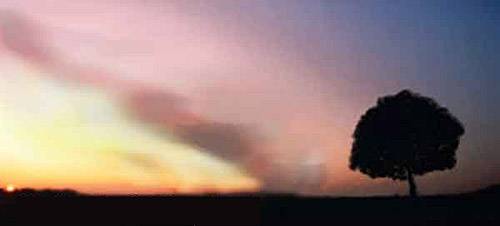Buland al-Haydari, 1926-1996
For a review of Simawe's recent book on Modern Iraqi Poetry, click here.
Poems which first appeared in Modern Poetry in Translation no.19 (special issue on Iraqi poetry, guest-edited by Saadi A. Simawe)

A major Iraqi poet born into a Kurdish family in Baghdad, Buland (Kurdish for mountain) began his intellectual life by joining the Iraqi left. In the Iraq of the 1940s and 1950s when Buland was emerging as a self-educated poet, the word "intellectual" in most cases connoted "Marxist" or at least "leftist." Traditionally, Iraqi Marxists and leftists, until today, never promoted Arab nationalism or Islamism. This secular, romantically revolutionary milieu attracted Iraqi writers from all ethnic and religious backgrounds. Buland, a Muslim Kurd who never advanced Kurdish nationalism or practiced Islam, found that Marxism ignited his rebellion against both Islamism and Western colonialism. The main struggle for the Iraqi left has always been against Western hegemony and domestic dictatorship. Hence Buland's poetry, which he wrote only in Arabic, from its early beginning is informed by a vision of secular democracy within which all IraqisóArab, Kurd, Turkoman, Persian, Muslim, Christian, Jewish, and Mandaienócould live together and appreciate each other. In addition, like most leftist Iraqi poets and writers, the struggle against Western colonialism that traditionally supported Arab dictatorships, transcends the Iraqi borders to embrace in a genuine (probably idealistic) internationalism the struggles of the liberation movements in Asia, Africa and Latin America. Buland's poetry is replete with scenes from the Third World life. Uncompromising in his struggle against oppression, Buland, after the fall of the British-installed Iraqi monarchy 1958, continued his political activism against nationalistic dictatorship that ultimately forced him into exile in Beirut from 1963-1976 when he worked as a journalist, bookstore manager, and teacher. He moved to London in the early 1980s. In 1992 his nine books of poetry were published in two volumes by Dar Sua'ad al-Sabah, Kuwait.
Nevertheless, Buland, taking poetry as his sole ideology, was too complex to be labeled as just Marxist or leftist or Communist. For even when he was in his highest political activism in the 1940s, Buland irritated his Communist friends by founding a literary club he rebelliously called "The Lost Time Group," which espoused a mixture of Marxism, existentialism, and Western literary avantgardism. I would read his poetic vision as primarily humanistic, radical humanism evident in internationalist poets such as the Turkish Nazim Hikmat, the Chilean Pablo Neruda, the French Louis Araqon and Paul Eluard, and the Spanish Fredrico Garcia Lorca, whom Buland read and poetically interacted with. In addition to advocating liberation and internationalism, Buland's poetry is unique among his contemporaries, whom literary historians refer to as Jeel al-Ruwwad (the pioneers) because of their rejection of the traditional Arabic poetics. By experimenting with new metrical and rhythmical possibilities, Buland soon distinguished himself as a master of poetic music that is very evocative and intimate. His favorite themes are those that expose oppression and injustice and that dream of a better world that tolerates human dignity.
Buland's poetry is frequently featured in major anthologies of modern Iraqi or Arabic literature. Numerous studies of modern Arabic poetry include discussion of Buland's poetry and its artistic achievements. His poetry has been translated into many languages such as English, French, Russian, Kurdish, Turkish, Chinese, among others. As Palestinian critic Issa J. Boullata observes in a recent article, Buland's poems are characterized by "a recurring Angst, often expressed in the form of interior monologue and wistful musings on the human condition, the destiny of humankind and the Arab homeland."
Saadi Simawe



